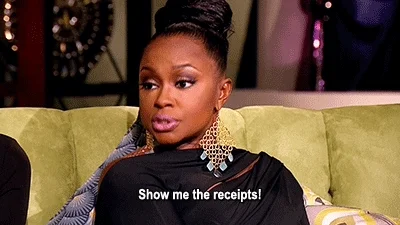You finally did it. You turned in your assignment. You know you're going to ace it with an A+ for sure. All your hard work has paid off. Time to celebrate! 🎉
Wait...why does your teacher look like a bomb ready to explode? 💥

"Cheater!" your teacher says. "You're a cheater!"
Your teacher marks your test with a big fat zero.
Oh no.

What are you supposed to say to that?!
Did you know?
1. Don't panic!
Take a moment to breathe.

The worst thing you can do is give in to your stress. Fight the urge to get angry or upset.
Remember that the truth is on your side. You know you didn't cheat.

Keep a balanced and peaceful mindset when you defend yourself.
Regain your control and don't lose your cool. Don't confess to anything that you didn't do!
2. Collect your evidence

You're going to need evidence to prove your innocence. That evidence is your receipt of truth. Find out why your teacher or professor believes you cheated.
It could be...
Suspected Plagiarism
Your teacher thinks you stole someone else's work.

A Perfect Score
You didn't have any wrong answers.

Finishing Too Fast
You were the first or one of the first ones to turn in your test/assignment.
 Wandering Eyes
Wandering Eyes
You were looking around the room. Your eyes wandered away from your paper.
Once you know the reason why, you can figure out the type of proof you need.
Suspected plagiarism: For Word and Google Doc files, rely on your file's history for your defense. Comparing the new assignment/test to your past work will help you.
Finishing too fast: Quickly finishing a test or assignment doesn't make you guilty of cheating. Offer to retake the test privately.
A perfect score: You could volunteer to answer more questions verbally, to help prove to your teacher that you genuinely know the right answers.
Wandering eyes: Draw the layout of the exam room, including where your classmates sat.
3. Appeal

Your might be required to go to a hearing or meeting about your alleged cheating. Cope with your anxiety beforehand.
Or, you might be required to email an explanation to your teacher or professor as part of your appeal.

The Hearing
Bring your evidence with you. Speak up. You know the truth!
There may be some higher-ups (e.g., the Dean, the principal, or the Conduct Review Board) at the meeting. They could end up reading your letter or reviewing the evidence.
When the hearing begins, your first move will be to thank everyone for their time. Start with a positive tone.
Then, tell them about the work you put into your assignment. Share the steps and research you took to achieve the score you deserved.
Refer to your evidence when you need to.
Above all else, believe in yourself! You'll survive this.
Quiz
Joe's economics professor says he cheated on the in-person final exam when he stretched. What should he do at his hearing?
Subscribe for more quick bites of learning delivered to your inbox.
Unsubscribe anytime. No spam. 🙂
4. Have patience

If your school needs time to review your appeal, you may have to wait.
Don't let the accusation stop you from continuing with your education. Keep going to school. Continue to turn in work.
 Photo by Max Shilov on Unsplash
Photo by Max Shilov on UnsplashYou need to live your life normally. Trust that the truth will win out.
Take Action

Being accused of cheating isn't fun, especially when you're innocent. You'll have to remain calm, find out why you were accused, gather your evidence, and make your appeal.
Your feedback matters to us.
This Byte helped me better understand the topic.

